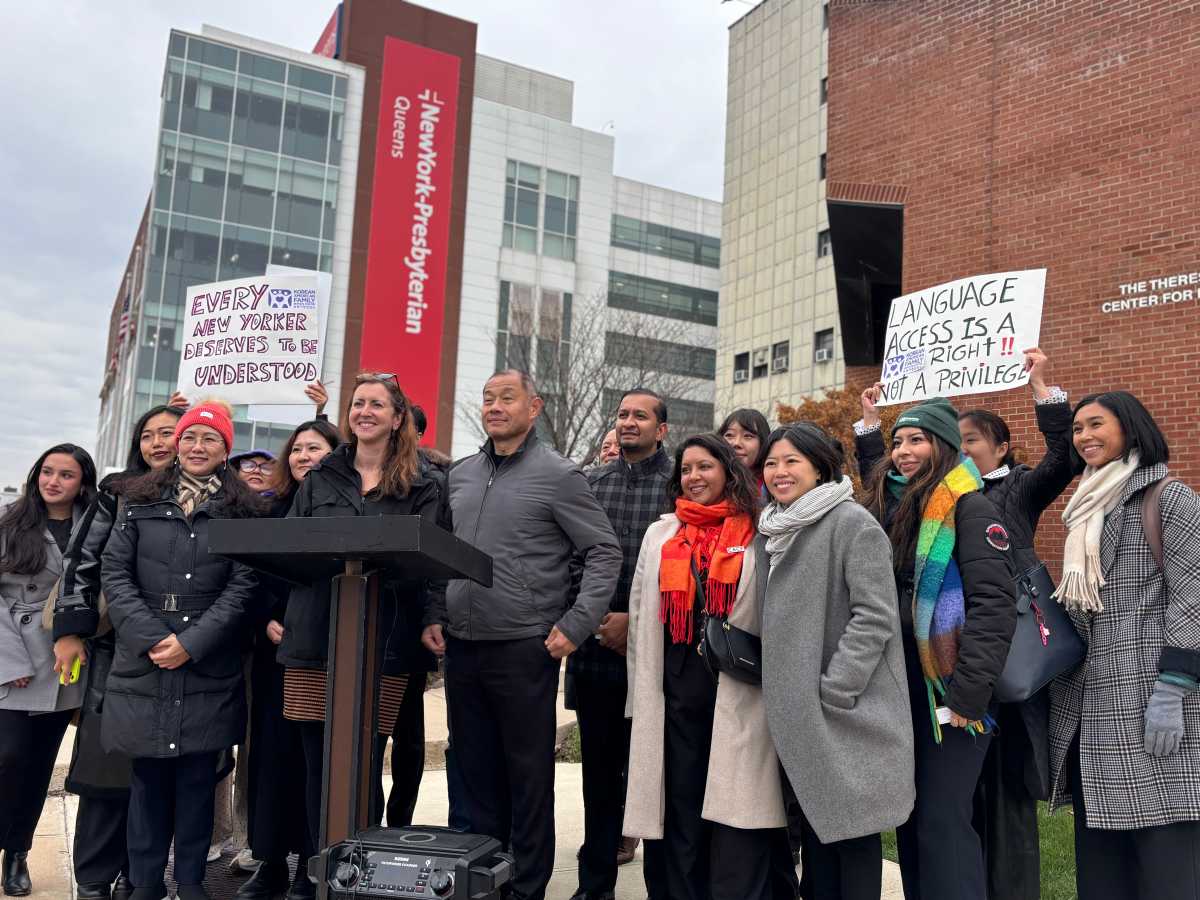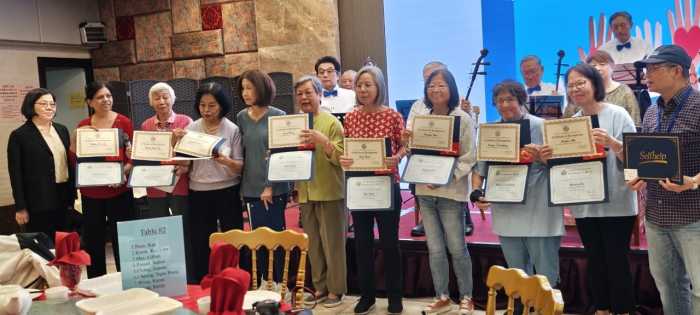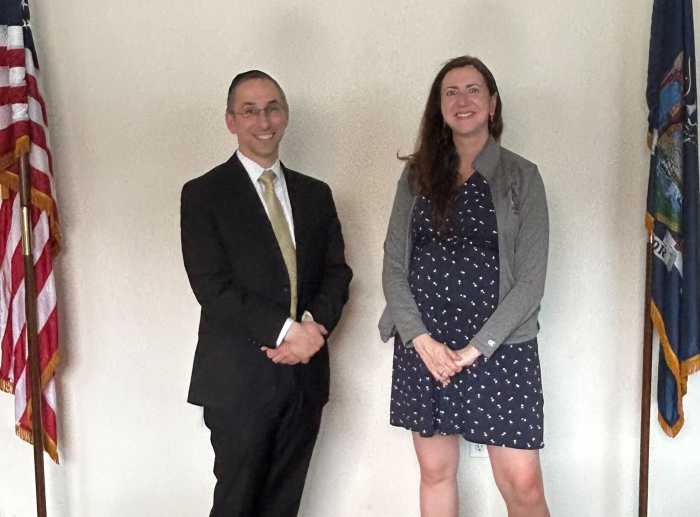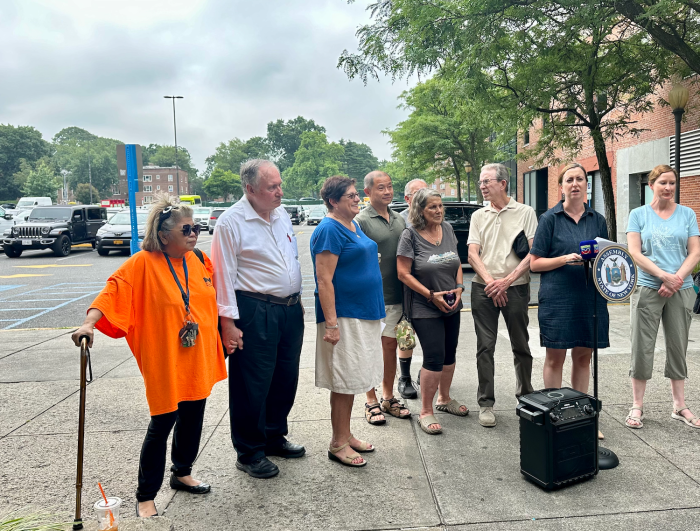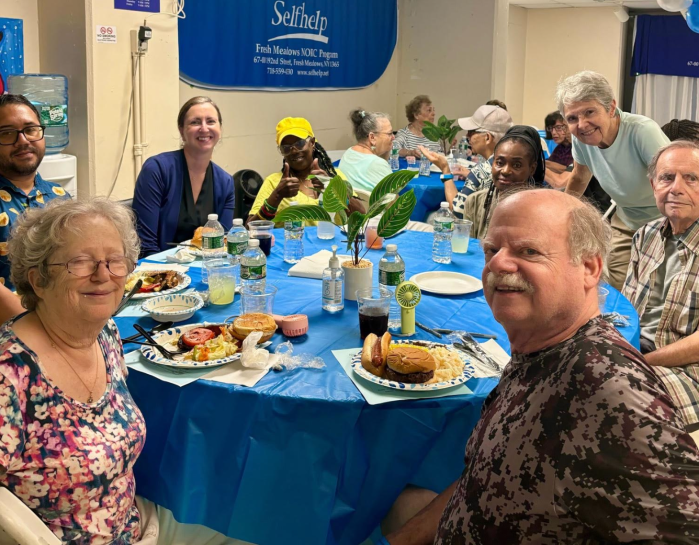Queens officials and community advocates demanded language services be required at hospitals and medical facilities during a rally outside of NewYork-Presbyterian Hospital in Flushing on Wednesday, Nov. 12.
Over a dozen speakers — which included Assemblymember Nily Rozic, State Sen. John Liu, Council Member Linda Lee and representatives from several community organizations — called upon Gov. Kathy Hochul to sign the hospital language access bill (A387/S6288) before the end of the year.
The bill, sponsored by Rozic and Liu, is aimed at improving language services to ensure equitable access to medical care across the state, particularly in areas like Queens, which is composed of residents representing over 150 countries and speaking over 800 languages, according to the World Economic Forum.
“Language access is health access,” Rozic emphasized. “Every patient and their family deserve to understand medical diagnosis and treatment options without fear of miscommunication or neglect. Our bill is about dignity, safety and fairness, and it’s time for New York to make it law.”
Comprehensive language services required by the bill include interpretation and translation support so patients can better understand diagnoses, medications and procedures communicated by their doctors, as well as consent to treatment with more confidence.
According to officials, there is no opposition to the bill, and it has already passed the state’s Senate and Assembly. However, they are urging Hochul to sign the bill before Dec. 31 to ensure its speedy implementation so hospitals can start delivering the quality care residents with limited English proficiency need.
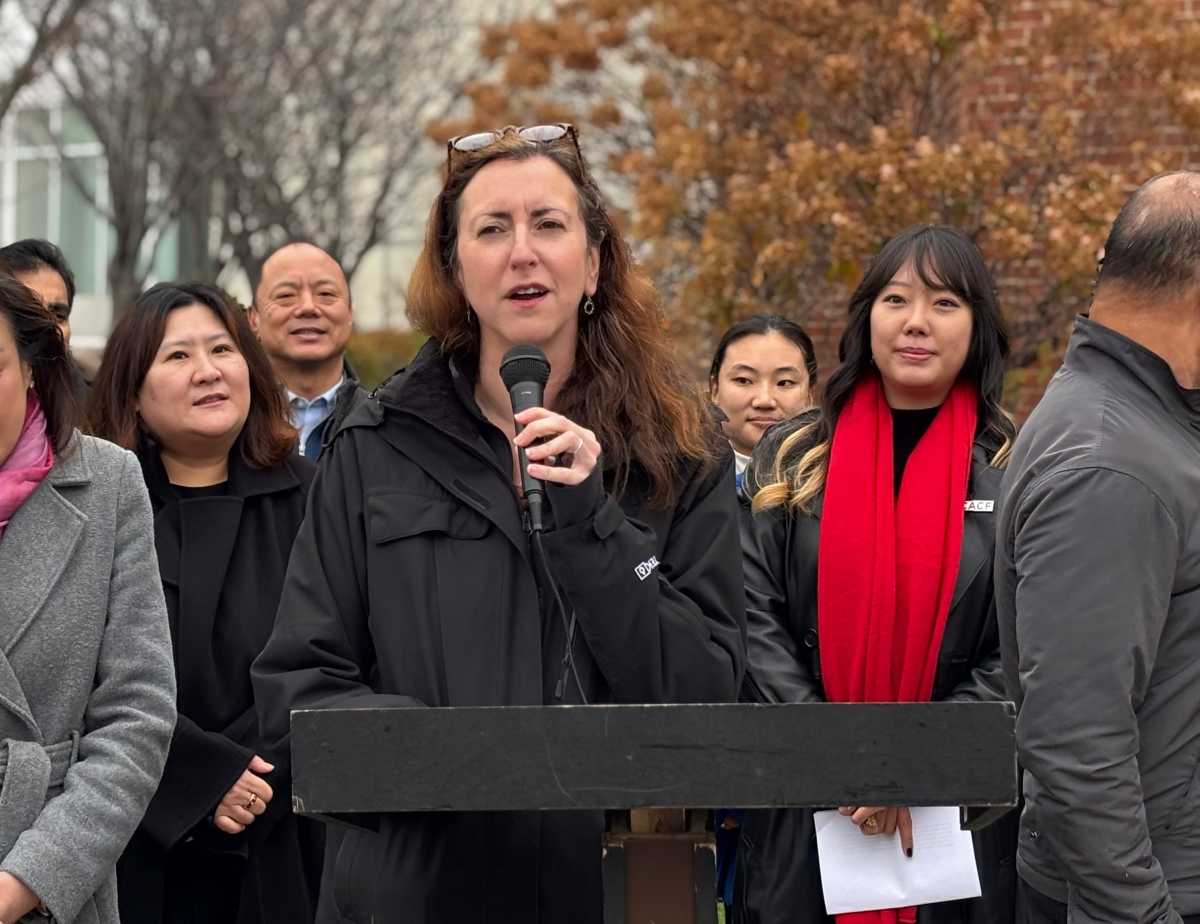
Queens is largely considered the “linguistic capital of the world,” with over 630,000 residents — 25.5% of the population — with limited English proficiency, as reported by the Office of General Services in August 2024.
According to a 2007 publication by the Commonwealth Fund, researchers studied over 1,000 adverse event reports from LEP and proficient English-speaking patients across six hospitals. Events included medication mistakes, patient falls, injuries during treatment, skin breakdowns and equipment problems. They found 49% of LEP patients experienced an adverse event that caused physical harm after receiving medical care from their respective hospitals, compared to 30% of proficient English speakers, who also experienced less severe adverse events. The study concluded the disparity was attributable to communication processes.
Several more recent reports explore various aspects of the disparity in different settings, demographics and corners of the healthcare industry. Reports include studies from the National Library of Medicine, the Journal of General Internal Medicine, the Kaiser Family Foundation and the Agency for Healthcare Research and Quality.
While advocates said NewYork-Presbyterian in Queens has adequate language translation services, many hospitals in the state are still not fully compliant with current mandates. A 2023 publication by the Nation’s Health noted that data on compliance is limited, but referenced a 2014 study that found only 64% of hospitals offered language access services.
A study published last month by the Journal of the American Medical Association Network states that of 514 hospitals studied across 17 states, almost 30% of them had online portals only available in English.
Lack of language services in medical settings puts many families in compromising positions, advocates of the bill said. Without interpreters and translators, children often serve as the only translators between doctors and their family members, which advocates said can be stressful and traumatizing for them.
“When the system fails, some of their families — especially their children — are forced to step in, often being relied on to translate complex medical information,” said Sherry Chen, the health policy coordinator at the Coalition for Asian American Children and Families. “Children can feel as if the sole responsibility of a parent’s life is placed in their hands.”
She also noted that the systemic failure of the healthcare system raises serious patient privacy concerns and challenges family dynamics.
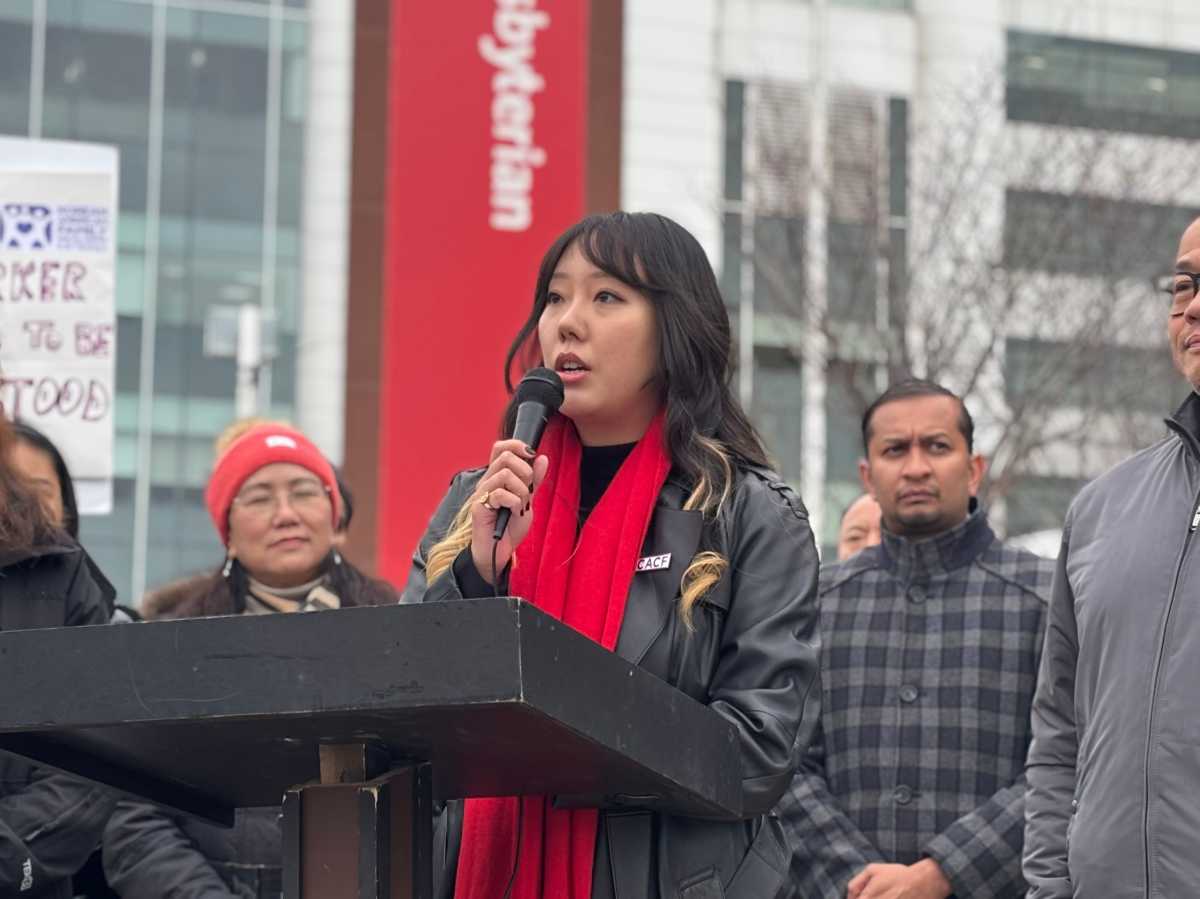
Thomas Yu, executive director of Asian Americans for Equality, recalled when his mother needed surgery while he was still a child. She received medical care at NewYork-Presbyterian — known as Booth Memorial Hospital at the time — during which Yu had to interpret for her.
“I was nervous for my mother because she was nervous,” Yu said. “She’s the adult, and I looked up to her for comfort and care. I had to be in a situation where the roles were reversed. I had to kind of assure her without knowing all the details myself.”
Jeehae Fischer, executive director of the Korean American Family Service Center, said the center often supports immigrant survivors of gender-based violence. When children and family members are required to translate physical symptoms related to this type of violence, it places an additional burden on them by forcing them to carry knowledge that may be traumatic. “No children should bear that kind of burden,” she said.
Liu, who was born in Taiwan and immigrated to Queens with his family when he was just 5 years old, said he has been his family’s primary interpreter since their arrival. While he joked it worked in his favor when it came to interpreting letters sent home from his principals, it became a stressful reality when they had to bring his younger brother to the emergency room.
“It’s certainly scary for a parent, let alone a child who’s the primary interpreter,” Liu said. “All the elected officials in New York, they say we’re the international capital of the world. I’ve never heard anyone say we are the capital of the English-speaking world. So we have to take care of all people, regardless of their background or their ability to speak English proficiently.”
Rozic, a child of Argentinian immigrants whose native language is Spanish, said even though her parents speak English proficiently, they still get flustered during hospital visits and have asked her to translate conversations in Spanish so they can fully understand what is being said by doctors. “Everyone needs to be held in the best care in the moments they are most vulnerable,” she said.
Patients without family members to translate suffer in different ways, advocates explained. Rehan Mehmood, director of health services at the South Asian Council for Social Services, shared a story of one of their patients, a U.S. citizen who suffered a brain injury while traveling outside of the country.
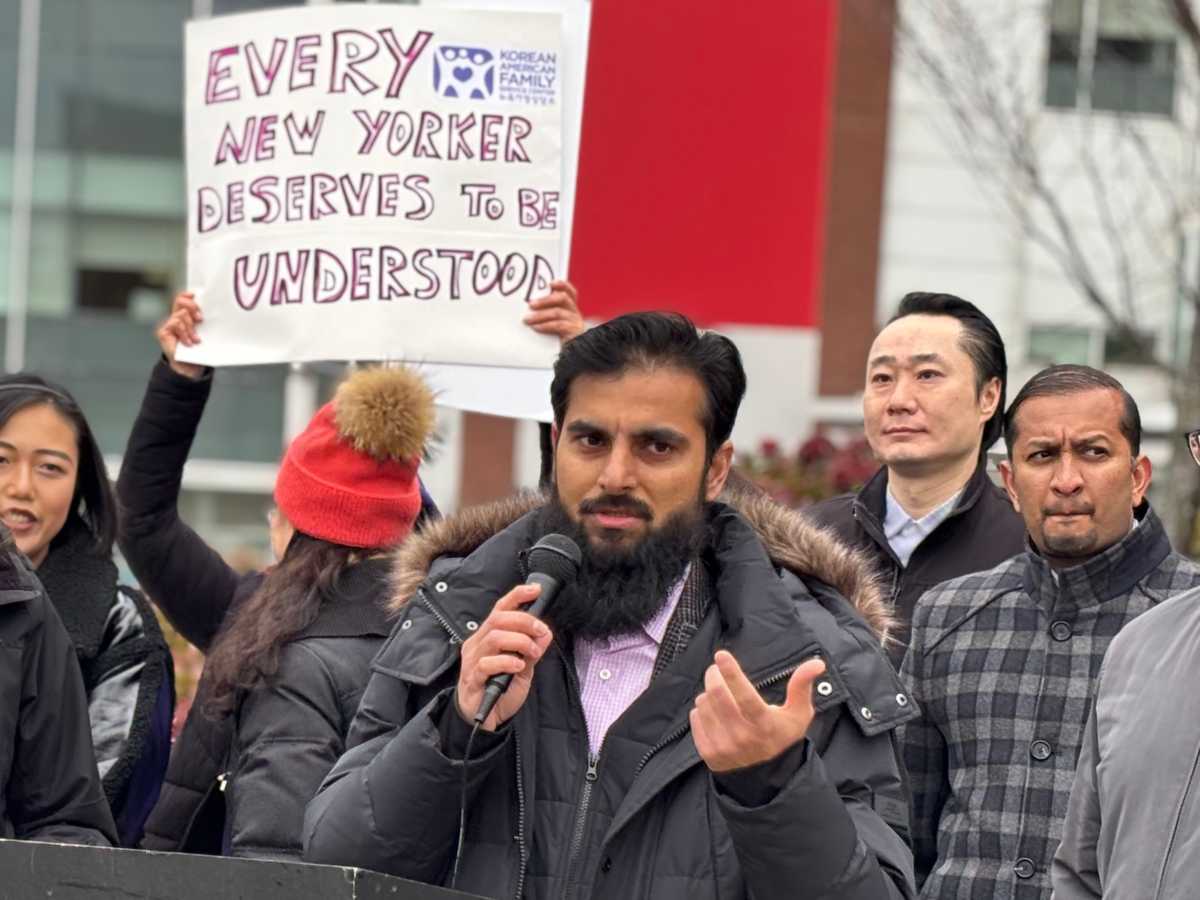
After returning to the U.S., Mehmood recounted, the patient called his doctor concerned about some symptoms he was experiencing. His doctor told him to see a neurologist, and he would have to reach out to another provider in order to get an exam.
This patient, Mehmood explained, did not speak English proficiently but made his best attempt to request an appointment, after which the neurologist’s office requested insurance information. The man explained that he did not have insurance, to which the receptionist said he would need to pay out of pocket.
“There was a lot going on in his life,” Mehmood said. “He was traumatized. He didn’t have any support, he didn’t speak English. So he started walking on 45th Avenue and thinking about ending his life. He was suicidal.”
Luckily, Mehmood said, the patient saw a sign outside the SACSS office, located on 45th Avenue, written in Hindi and Urdu that said the office could help patients access healthcare. The patient walked in and, after receiving help from the office, got the care he needed. Mehmood said language access saved this patient’s life.
For more information about the bill, visit NYSenate.gov or Assembly.State.NY.us.

